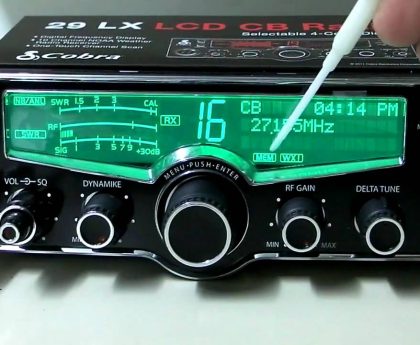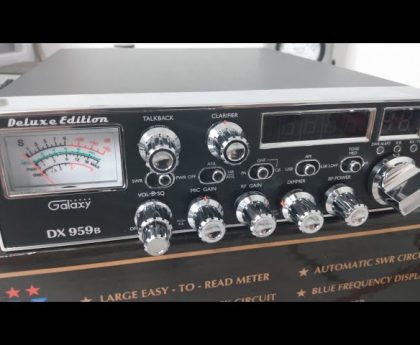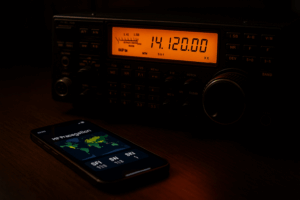Join our Exclusive CB Radio Newsletter
In an era dominated by smartphones, apps, and 5G networks, CB radios might seem like relics of the past. However, these old-school communication devices are far from obsolete. CB radios continue to offer unique advantages that modern technology simply can’t replicate. From their rugged reliability to their offline independence, CB radios are proving that sometimes, old-school tech is still the best choice. In this article, we’ll explore how CB radios compare to modern communication technology and why they remain relevant today.
1. Rugged Simplicity: Built for Tough Conditions
CB radios are designed to perform in environments where modern communication devices often fail. Whether it’s extreme weather, remote locations, or harsh conditions, CB radios are built to last. Unlike smartphones, which rely on fragile components and delicate software, CB radios prioritize durability and straightforward functionality.
- Case in Point: Truckers and off-road enthusiasts prefer CB radios because they don’t require an internet connection, and their signals can cut through areas with no cell coverage.
2. Independence from Networks
Modern communication relies heavily on infrastructure like cell towers, satellites, and Wi-Fi networks. While these systems are generally reliable, they’re also vulnerable to outages, hacking, and congestion during emergencies. CB radios operate independently, using radio frequencies to connect directly with other users.
- Advantages:
- CB radios work without subscriptions, contracts, or data plans.
- They are immune to network outages and do not depend on external providers.
- Channels like Channel 9 are dedicated to emergency communication, providing immediate access to help.
3. Privacy and Anonymity
In a world where privacy concerns are growing, CB radios offer a refreshing alternative. Unlike smartphones and apps that track location and collect user data, CB radios don’t require personal information to operate. Conversations are broadcast over public channels, but users remain anonymous, identified only by their handles or call signs.
- Who Benefits?:
- Preppers and survivalists value CB radios for their lack of digital footprints.
- Hobbyists enjoy the freedom of casual, anonymous conversations.
4. Cost-Effectiveness
Modern communication technology often comes with recurring costs, such as monthly bills, app subscriptions, and data overages. CB radios, on the other hand, require a one-time investment for the device and an antenna. Once set up, they offer free communication, with no hidden fees or ongoing charges.
- Example: A quality CB radio setup can cost $100–$300, but it provides unlimited use without additional expenses.
5. Superior Group Communication
CB radios excel at group communication, making them ideal for scenarios where multiple people need to stay connected. Unlike smartphones, which often require apps or conference calls, CB radios allow users to speak to entire groups simultaneously over shared channels.
- Common Uses:
- Convoys of trucks coordinating logistics on the road.
- Off-road enthusiasts navigating trails as a group.
- Emergency response teams sharing updates in real time.
6. Resilience in Emergencies
In emergencies like natural disasters or large-scale outages, modern communication systems can become overloaded or fail completely. CB radios have long been a reliable backup in these situations. Their simplicity and direct connectivity make them invaluable during crises.
- Real-World Example: During Hurricane Katrina, CB radios were used by civilians and rescue teams to coordinate efforts when cell networks were down.
7. Nostalgia and Community
For many users, CB radios are more than just communication devices—they’re a way to connect with a unique community. The CB radio culture, complete with its own slang and etiquette, fosters a sense of camaraderie that modern tech often lacks. Joining a CB conversation feels like stepping into a lively, welcoming neighborhood.
- Modern Applications:
- Hobbyists use CB radios to participate in “on-air” events and group discussions.
- Collectors enjoy restoring and using vintage CB models.
8. Limitations of CB Radios
While CB radios have many advantages, it’s important to acknowledge their limitations:
- Range: CB radios typically have a range of 1–5 miles, though this can be extended with high-quality antennas and SSB capabilities.
- Public Channels: Conversations are not private and can be overheard by anyone on the same frequency.
- Learning Curve: New users may need time to learn CB lingo and proper channel etiquette.
Despite these limitations, the benefits often outweigh the drawbacks for specific use cases.
Conclusion
CB radios and modern communication technologies each have their strengths, but CB radios remain irreplaceable in certain scenarios. Their independence, resilience, and affordability make them a valuable tool for truckers, hobbyists, preppers, and anyone seeking reliable communication. While smartphones may dominate the mainstream, the enduring appeal of CB radios proves that sometimes, old-school really does rule. Whether you’re navigating a convoy, preparing for emergencies, or simply enjoying the nostalgia, CB radios are a timeless choice.
So, the next time you hear someone say “10-4,” you’ll know why CB radios are still going strong. Over and out!
Check our selection of Hamradio e-books
-
Sale!

Mastering APRS
Original price was: $59.99.$47.99Current price is: $47.99.
A Comprehensive Guide – ebook
⭐⭐⭐⭐⭐ -
Sale!

Mastering FT8
Original price was: $59.99.$47.99Current price is: $47.99.
A Comprehensive Guide to the Ultimate Digital Mode – ebook
⭐⭐⭐⭐⭐ -
Sale!

Stealth CB Antennas
Original price was: $59.99.$47.99Current price is: $47.99.
A Masterclass in Innovation and Disguise – ebook
⭐⭐⭐⭐⭐ -
Sale!

Ace Your Ham Radio Exam
Original price was: $59.99.$47.99Current price is: $47.99.
Technician, General, and Extra Class – ebook
⭐⭐⭐⭐⭐ -
Sale!

DMR for Hams
Original price was: $59.99.$47.99Current price is: $47.99.
The Ultimate Beginner’s Guide – ebook
⭐⭐⭐⭐⭐ -
Sale!

D-STAR, DMR & Fusion
Original price was: $59.99.$47.99Current price is: $47.99.
A Beginner’s Guide – ebook
⭐⭐⭐⭐⭐ -

Mastering the 6-Meter Band
$47.99
The Ultimate Guide – ebook
⭐⭐⭐⭐⭐ -
Sale!

Integrating Ham Radio with Modern Technology
Original price was: $59.99.$47.99Current price is: $47.99.
IoT, Raspberry Pi, and More – ebook
⭐⭐⭐⭐⭐ -
Sale!

D-STAR, DMR & Fusion
Original price was: $59.99.$47.99Current price is: $47.99.
Guia para Principantes – ebook
⭐⭐⭐⭐⭐ -
Sale!
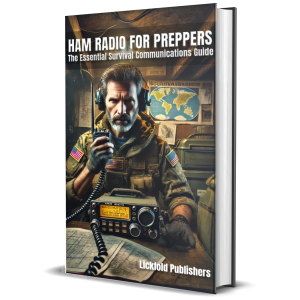
Ham Radio for Preppers
Original price was: $59.99.$47.99Current price is: $47.99.
The Essential Survival Communications Guide – ebook
⭐⭐⭐⭐⭐ -
Sale!

Mastering Marine Radio
Original price was: $59.99.$47.99Current price is: $47.99.
A Sailor’s Guide to Confident Communication – ebook
⭐⭐⭐⭐⭐
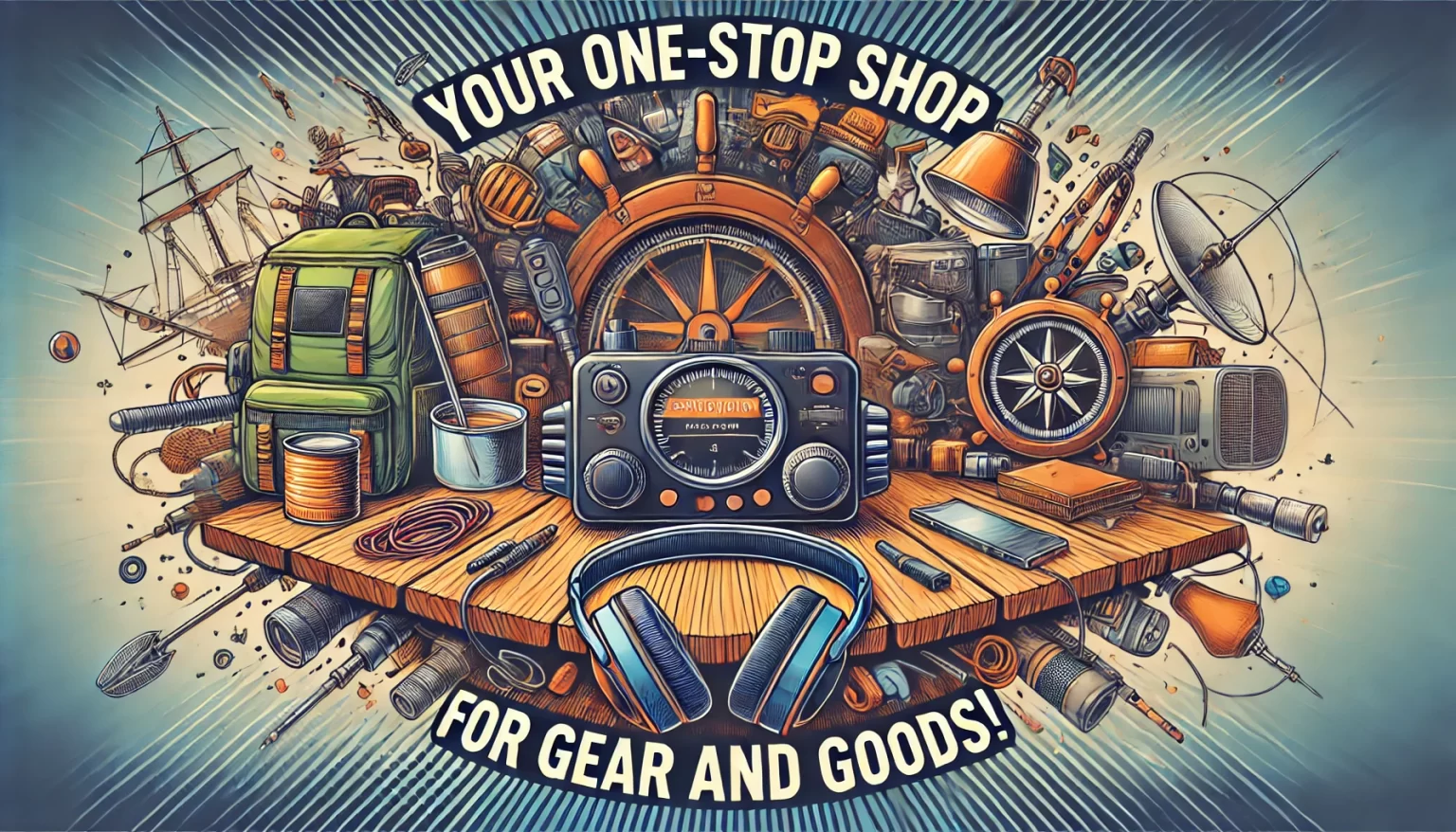
Enter shop




